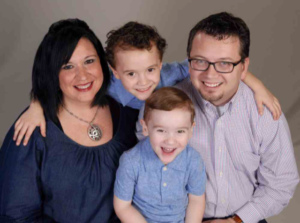“And what you have heard from me in the presence of many witnesses entrust to faithful men who will be able to teach others also.” 2 Timothy 2:2 (ESV)
I was just recently introduced to the Death Clock, a silly little Internet site that can predict when you’re going to die. After entering my information, I’m going to die on April 25, 2056. So, according to that I have roughly 43 years left. And when that day comes, they’re going to put me in a box, put the box in the ground, and drive back to the church to eat potato salad.
The reality is that all of us in leadership are going to die, and all the work and accomplishments we have will die with us – someone else will take our spot, someone else will get our jobs, and someone else will write notes in our books. The question is, what kind of legacy will you leave behind? What will you do to make your ministry outlive yourself?
(Of course, there is also the less life-threatening reality that many of us will, some day, leave our current positions and transition into new ones. Here, too, our legacies are worth considering.)
Recruit – Simply begin by recruiting people who will carry on the legacy, the ministry. The important thing here is to note that character is greater than competence. The basic ‘how to’s of leadership can be taught, caught, and replicated. But it’s impossible to teach ‘how to be’ – this is only something that God can do. The key is to look for people who are faithful first. If someone demonstrates themselves to be faithful and of sound character, they might be worth the time to invest in.
Invest – There is a significant time investment to leader development, but in the end it is worth it. In the time it takes me to coach one of my interns in preparing, writing, and delivering their Bible study message, I could write 2-3 of my own. But the investment of time in them means that they will then be able to take what they know and pass it along to others. Think of it like a startup, a plain and simple business model. There is an initial investment of capital (time, energy, and resources), but there is a profitable return. If a leader mentors & trains two people a year, and they both do the same the next year, and so forth, in 10 years the leadership legacy is 2,110 competent, trained, and replicated leaders. Imagine the scale of that influence. One person committed to raising leaders, perhaps you, can make impact in over 2,000 churches/ministries/colleges in one decade. The long-term return on a leadership legacy is well worth the initial investment and labor.
Progress – A key element in leaving a legacy is giving those you develop the opportunity to grow. A helpful progression here is a model where a follower progresses from a heavy investment & oversight to the point where the leader delegates without much, if any, oversight. As a leader, our job is to prepare and send those under our leadership. Early on in the development process, a lot of small tasks, short-term planning, and easier work with oversight is important. From there, you can begin to expand their workload and expectations. I like to keep my interns in the background for a period of time, allowing them to see the behind-the-scenes part of ministry, to talk with them about foundational issues, and allow them opportunity to do some heavy reading on leadership & ministry. After that, I give them more face-time, teaching opportunities, longer-range preparation, and bigger tasks. In time, my plan is to help them find a ministry position, encourage them to develop leaders, and to (lovingly) get rid of them!
Equip – Pour your resources, knowledge, experience, and connections into the leader you’re developing. Take them to conferences, introduce them to people in your network, help them expand their own networking ability, get them started in building their leadership library, share your life with them. Raising up a leader and leaving a legacy is more than following a curriculum and a plan, it’s following a person – you. Equipping those in your leadership legacy is more than the right books, the right Twitter contacts, and the right conference – it’s shaping them and pointing them to the right step. Give yourself to those in your leadership. The man who mentored and discipled me all through college has a phenomenal leadership himself. He gave of himself and his leadership to a number of us while we were still very green – and that leadership legacy spans 3 continents and almost half the states in the US.
What would you add to the list? Have you developed a leadership legacy?







